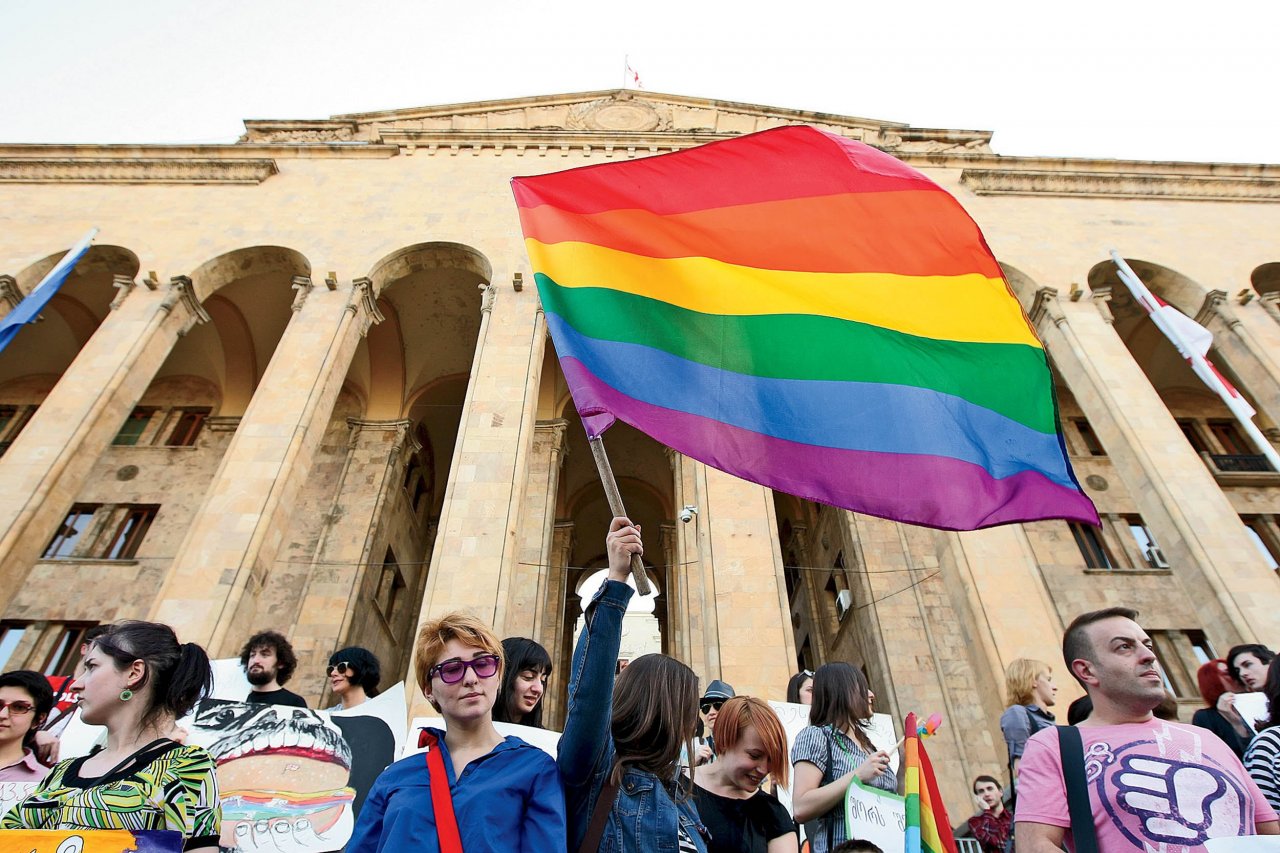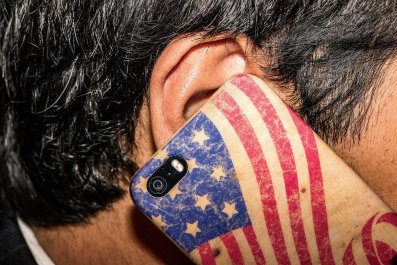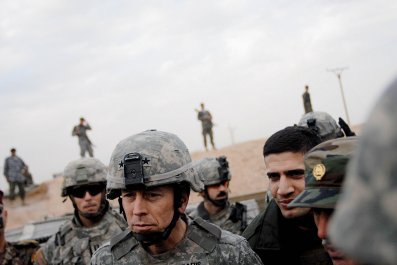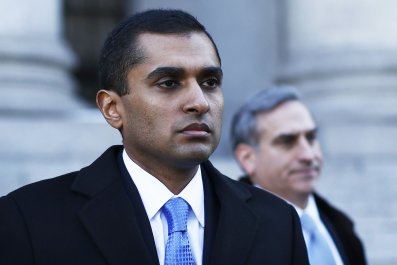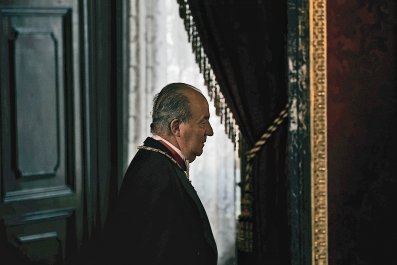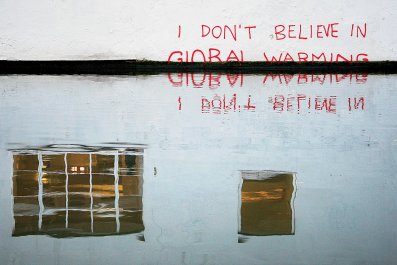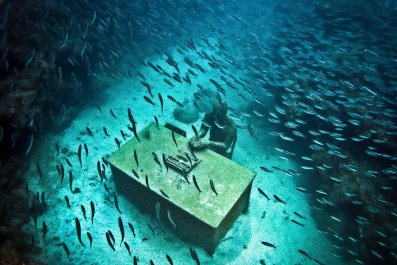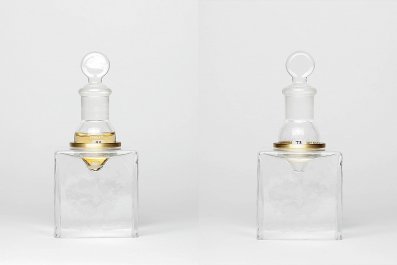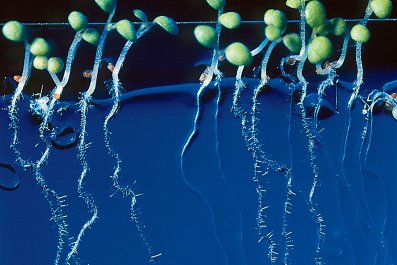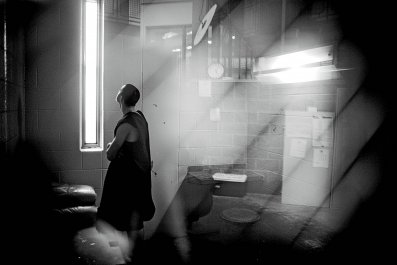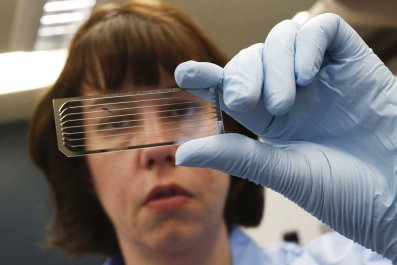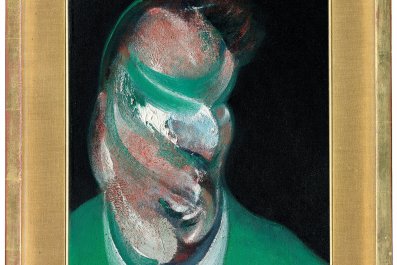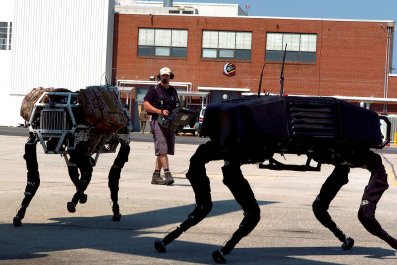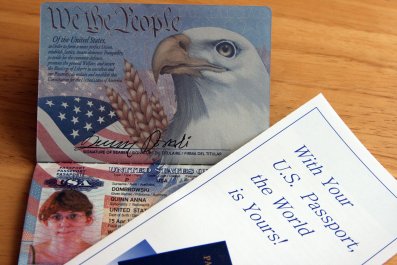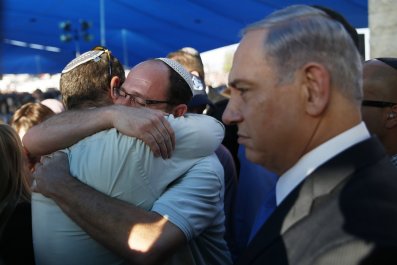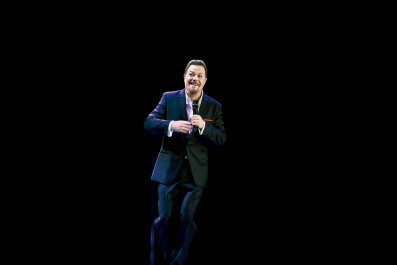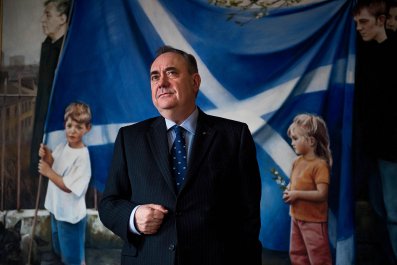The Georgian town of Gori is best known as the birthplace of Joseph Stalin. But in the days -running up to May 17, this drab ex-Soviet back-water achieved a different kind of notoriety, and a splash of colour, when a handful of flamboyantly dressed men sporting wigs, make-up and trashy female clothes gathered to protest about being excluded from a TV panel show.
They were claiming to be gay activists and May 17 was the International Day Against Homophobia. The Georgian media gleefully described them as "transsexual sex workers", but the protesters claimed to be the legitimate representatives of Georgia's lesbian, gay, bisexual and transgender (LGBT) community. The country's own LGBT rights group, Identoba, was in it for the western grant money, they said, and they vowed to hold their own "Gay Pride march" to mark the official date.
Impoverished, conservative Gori is not known for its transsexual sex workers, and Identoba had explicitly stated that no public demonstrations would be held on May 17 due to the events of IDAHO 2013. That year, a priest-led mob tens of thousands strong had rampaged through the centre of the capital Tbilisi, violently disrupting a tiny anti-homophobia rally. In spite of video footage showing priests inciting the crowd, and hundreds of examples of property damage and other crimes, not a single person was prosecuted. Identoba decided that as the Georgian police could not or would not protect people's right to freedom of expression and assembly, it would be best for them to call on supporters to stay home.
On May 17th itself, a phone recording emerged in which the ringleader of the Gori protest claimed he had been hired by a group called the Eurasian Institute, a newly founded pro-Kremlin organisation, dedicated to returning Georgia to the Russian fold. He said he had been paid to stage a Gay Pride march to provoke an anti-gay pogrom this year, and thereby to derail the signing of an Association Agreement between Georgia and the European Union.
Unsurprisingly, the bizarre scheme failed. The date was appropriated by Orthodox Christians as 'a day of family values' and passed peacefully, with Identoba organising poignant "invisible actions" like leaving hundreds of empty shoes on Tbilisi's main square where the anti-homophobia rally was attacked last year.
Meanwhile, in June, Georgia, along with Ukraine and Moldova, was due to sign the Association Agreement, and thus move one step closer to Europe, at least on paper.
The agreement, like much of what the EU does, is seen as a dull-but-worthy package of measures associated with things like free trade, food quality and visa liberalisation. As a signatory, Georgia will now have preferential access to the world's biggest market, and soon Georgians will be able to travel to Schengen countries with fewer restrictions.
As such, it is an unlikely casus belli but when Ukraine's former president Viktor Yanukovich, in a spectacular about-face, refused to sign it in November 2013 in favour of a deal with Moscow, he unleashed the protests that toppled him, and the ensuing Russian intervention. In Ukraine, Russian tanks, volunteers and intelligence officers are flooding across the -border to scupper the country's European -project. In Georgia the conflict is ideological, and groups like the Eurasian Institute are the vanguard.
"This is especially dangerous here," says Koba Turmanidze, the director of CRRC, a polling and research organisation. "There is a big lack of awareness about the EU here. People want to join it but they don't know what exactly that means. This gives a chance to these anti-western forces to come out and maybe increase popularity."
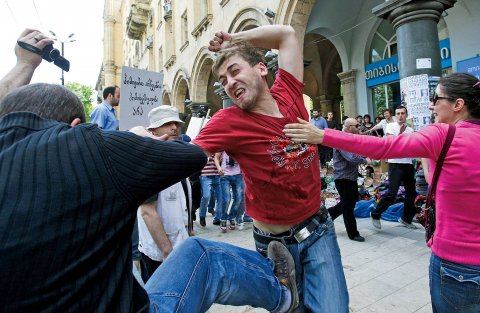
Irakli Vacharadze, the head of Identoba, puts it another way. "Putin's ideology promotes homophobia as a way to isolate countries like mine from the civilised world. The sad thing is that the groups who used to promote this were marginal, now they are not marginal anymore."
Indeed, in Georgia's latest local elections, held just a week before the Association Agreement was signed, explicitly anti-western parties collectively garnered around 15% of the vote. A new force, the "Alliance of Patriots" cleared 4% for the first time, qualifying them for state funding.
"It is no secret who funds these guys. They say it openly that Georgia needs to go back to mother Russia, needs to turn its back on the West," Vacharadze laments.
But pro-Russian forces have a big mountain to climb in Georgia. A CRRC poll from 2013 shows that 83% of Georgians would vote to join the EU tomorrow, given the chance.
While the Association Agreement is not a path to EU membership, Georgian leaders are fairly straightforward about where they want to get to. In a press conference a few days before the signing ceremony, European Commission president José Manuel Barroso remarked that the EU had doubled in size to 28 members over the past decade. The Georgian prime minister, Irakli Gharibashvili, with a gleam in his eye, quipped back "we'll do everything to be number 29".
"Georgia has gone too far in terms of its political consensus and posture, and public opinion most importantly," says Giga Bokeria, a former secretary of the Georgian National Security Council. "Public opinion is behind EU membership, but there is a danger of Russia capitalising on that moment of frustration after the agreement has been signed. A few months will pass and the economic situation won't get much better, then the Kremlin might decide to activate the leverage they have been building up."
For now, that leverage has been confined to mobilising homophobes and nationalists, but Russia has powerful tools at its disposal. Following a war over the separatist province of South Ossetia in 2008, Russian troops occupy 20% of Georgian territory. According to Bokeria, the "pragmatic pro-Russian" argument is the most dangerous. "The pragmatist argument says look at Ukraine. Putin does whatever he wants. Eastern Ukraine continues to bleed but it's business as usual with Putin for the West. We are under threat, no one is coming to help, so we should make a deal with Putin, he's a pragmatic guy."
But, Bokeria points out, there is also "the values argument". Russia can seek to capitalise on Georgia's traditionalist, Orthodox Christian mores. CRRC data shows some 90% of people say homosexuality is "never justified".
For Vacharadze at Identoba, this is the crux of the matter. "So 80% of people say they want to join Europe, so what? There has never been a real European project in Georgia. It's been labelled as such but it's been elitist, remote, seen as something that has been imposed," he says.
As Vacharadze looks out over central Tbilisi from his office, a massive Alliance for Patriots election billboard can be seen through the rainbow flag blinds. "The real European project will be when I can say to these people that I am local, I am Georgian, and I have a right to live and thrive," he says.



